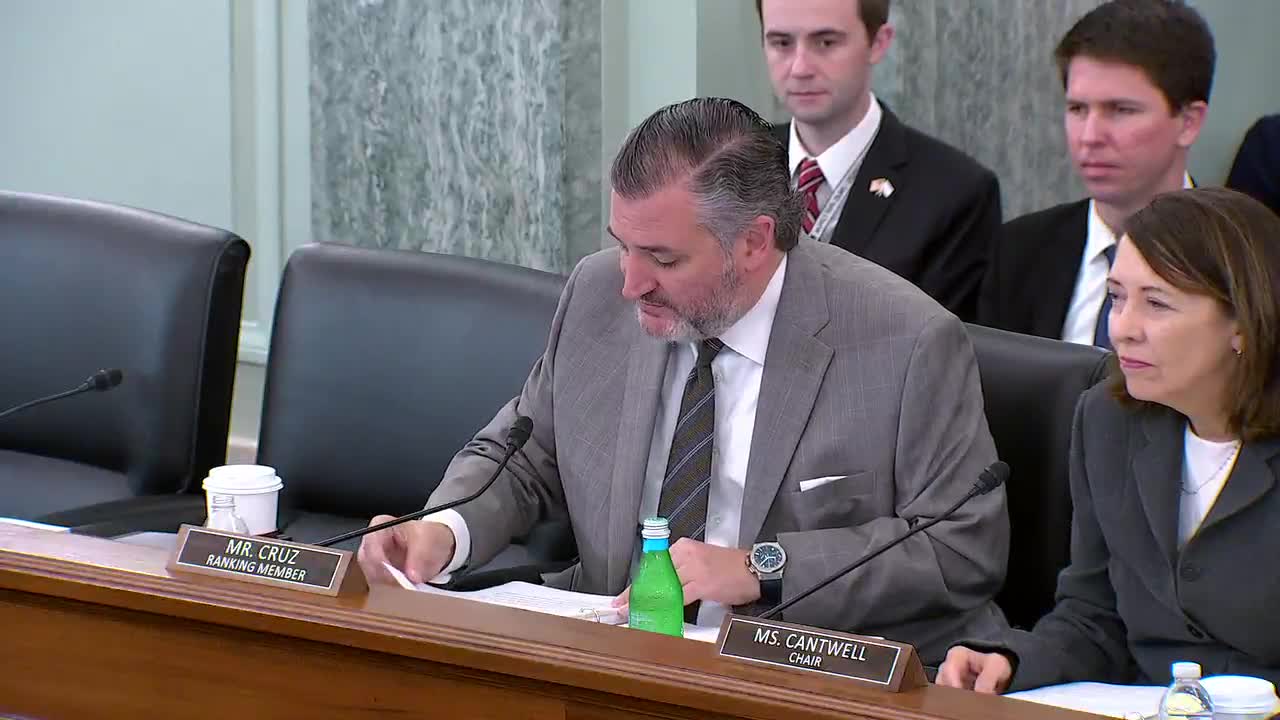Senate hearing on maritime strike could cost billions
September 25, 2024 | Commerce, Science, and Transportation: Senate Committee, Standing Committees - House & Senate, Congressional Hearings Compilation
This article was created by AI summarizing key points discussed. AI makes mistakes, so for full details and context, please refer to the video of the full meeting. Please report any errors so we can fix them. Report an error »

During a recent government meeting, Federal Maritime Commissioner Carl Benzel appeared for his confirmation hearing for a second term, highlighting the critical role of the Federal Maritime Commission (FMC) in ensuring competitive ocean transportation and adherence to the Shipping Act. The FMC's oversight is particularly pertinent as the U.S. faces the potential for its first union strike at East and Gulf Coast ports since 1977, a situation that could have dire economic implications. A recent analysis by JPMorgan, reported by the New York Times, estimated that a port strike could cost the American economy up to $5 billion per day.
Senators expressed concern over the Biden administration's apparent lack of proactive measures to prevent the strike, emphasizing the need for effective negotiation between the involved parties. While the FMC will not directly engage in these negotiations, it has committed to monitoring stakeholder practices to ensure compliance with the Shipping Act.
Additionally, Thomas Chapman, nominated for a second term at the National Transportation Safety Board (NTSB), was discussed. The NTSB, known for its thorough investigations into transportation accidents, plays a crucial role in recommending safety improvements, although it lacks regulatory power to enforce these recommendations. Chapman's previous focus on roadway safety is particularly relevant, given the alarming statistic of nearly 41,000 motor vehicle traffic fatalities reported last year. Senators expressed hope that Chapman would continue to prioritize safety enhancements without imposing excessive regulations that could limit consumer choice.
The meeting underscored the importance of both the FMC and NTSB in navigating current transportation challenges and enhancing safety standards across various modes of transport.
Senators expressed concern over the Biden administration's apparent lack of proactive measures to prevent the strike, emphasizing the need for effective negotiation between the involved parties. While the FMC will not directly engage in these negotiations, it has committed to monitoring stakeholder practices to ensure compliance with the Shipping Act.
Additionally, Thomas Chapman, nominated for a second term at the National Transportation Safety Board (NTSB), was discussed. The NTSB, known for its thorough investigations into transportation accidents, plays a crucial role in recommending safety improvements, although it lacks regulatory power to enforce these recommendations. Chapman's previous focus on roadway safety is particularly relevant, given the alarming statistic of nearly 41,000 motor vehicle traffic fatalities reported last year. Senators expressed hope that Chapman would continue to prioritize safety enhancements without imposing excessive regulations that could limit consumer choice.
The meeting underscored the importance of both the FMC and NTSB in navigating current transportation challenges and enhancing safety standards across various modes of transport.
View full meeting
This article is based on a recent meeting—watch the full video and explore the complete transcript for deeper insights into the discussion.
View full meeting